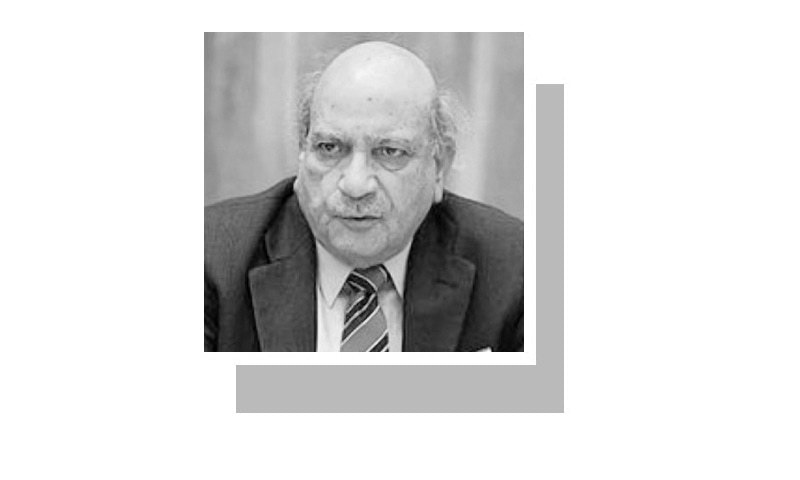
THREE days hence the people will be celebrating the 70th anniversary of the birth of Pakistan in the hope that at 70 the state will start displaying some qualities of maturity and responsibility that many younger countries acquired in their youth.
Before we begin the Independence Day festivities, the members of the minority communities will be observing tomorrow, Aug 11, as Minorities Day in remembrance of the address the Quaid delivered before the constituent assembly. They will go over that speech again and again to remind the powers that be of the ideals the founder of the state had set for them. They will also recall the Supreme Court judgement of June 2014 that offered a broad framework for not only guaranteeing the minorities due protection but also according their rights as equal citizens better respect than they have so far received.
Mention might be made of the Supreme Court’s implementation bench that had been charged with ensuring enforcement of the verdict. The minorities should be forgiven if they think their case is as important as any other.
Why should the minorities alone celebrate Aug 11 with reference to the Quaid’s speech?
The next day, that is, on Aug 12, at a modest place in Hyderabad a relatively small crowd of people will be paying homage to Nazeer Abbasi, a different kind of shaheed, who had dared to oppose a mighty dictator so that we could hold our heads high, call this land our own and live without fear of falling to the sniper’s bullet. So let us also celebrate Nazeer Abbasi’s courage and his commitment.
It is necessary to remind ourselves of the tyranny of the regime under which Nazeer Abbasi was killed. But it is more important to remember Nazeer’s courage to speak out when most people had chosen to remain silent. While celebrating freedom we must not fail to honour all those valiant souls, from different parts of the country, who strove to offer its correct meaning.
But why should the minorities alone celebrate Aug 11 with reference to the Quaid’s speech on that day 70 years ago? Didn’t that speech have something that the entire nation ought to celebrate? True, the Quaid promised the non-Muslim citizens equality with the Muslims, but this was not a concession to the minorities. It was in the interest of the Muslims. Without taking the minorities along, the Muslims could not have realised themselves, then and they cannot realise themselves now. Besides, the Quaid said much more in his address in 1947 that the whole nation must seriously ponder.
When the Quaid declared that religion had nothing to do with the business of the state did he not reject the idea of a theocratic dispensation? After emphasising the sovereign character of the assembly as the federal legislature he defined as its first task maintenance of law and order “so that the life, property and religious beliefs of the subjects are fully protected by the state”.
The other primary responsibilities of the state were eradication of corruption as manifested in bribery, nepotism and black marketing. But these basic requirements of good governance were not being told to Pakistan’s politicians for the first time; these had formed part of the dream of freedom those fighting for independence from alien rule had including those working under the banner of the Muslim League and shouting for Pakistan.
It is often said that what was meant by freedom was never spelt out. Nothing could be farther from the truth. Maybe, the leaders by and large had not applied their minds to the needs and aspirations of the drawers of water and hewers of wood, as Iqbal described the poor Muslims, but what was said at the platform of the Muslim League too can give us an idea of what was meant by freedom.
We find that in 1908, the campaigners against colonial rule wanted separation of the judiciary from the executive, right to primary education, end of official interference in local, government and development of village unions for settling petty civil and criminal cases.
We also find the Muslim League demanding in 1918, the inclusion in the constitutional arrangement a bill of rights that guaranteed the people equality before law, the right to life, liberty, property, freedom of speech, expression and association, and freedom of the press.
Nearly two decades later the Muslim League was asked by the president of its annual session to adopt a four-point programme as its immediate aim. These points were:
A democratic, responsible government, with adult franchise.
Repeal of all exceptionally repressive laws and the granting of the right of free speech, freedom of the press and organisation.
Immediate economic relief to the peasantry; State provision for educated and uneducated unemployed; and an eight-hour working day, with fixed minimum wages for the workers.
Introduction of free, compulsory primary education.
The Socio-Economic Programme adopted at the Lucknow session of the Muslim League in 1937 has often been recalled. It also included a resolve to uphold the rights of workers and peasants, to end rural indebtedness, and also to free Muslim society of un-Islamic accretions.
All this is being recalled to demonstrate that the fact of Pakistan meaning different things to different people does not matter. The landlords had hoped to regain their mortgaged properties. The clerks in the secretariat perhaps wanted to become deputy secretaries and the assistant sub-inspectors of police might have fixed their eyes on DSP’s uniform. But what inspired the millions of ordinary people was simply a yearning for security of life and liberty and escape from poverty, disease and want.
The question that needs to be answered on completion of 70 years of a sort of self-rule is as to how could the rulers forget the dreams we had during the freedom struggle and the advice of the founder of the state, and why did the people let them get away with it?
Published in Dawn, August 10th, 2017











































